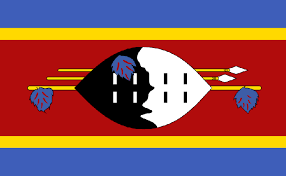Language/Swati/Grammar/Questions
Hi Swati learners! 😊
In this lesson, we will cover questions in Swati grammar. Asking questions is an important part of communication in any language, and Swati is no exception. We will also provide cultural information and interesting facts related to Swati along the way.
With the completion of this lesson, consider investigating these related pages: Pronouns, How to Use Have & Negation.
Forming Questions in Swati[edit | edit source]
In Swati, a direct question is formed by simply changing the intonation at the end of a statement. For example:
- Statement: Ngicela inkomo. (I want a cow.)
- Question: Ngicela inkomo? (Do I want a cow?)
Note that the only difference between the statement and question is the rising intonation at the end of the sentence when asking a question.
Another way to ask a question in Swati is to add the particle "na" at the end of the sentence. For example:
- Statement: Bayacela inkomo. (They want a cow.)
- Question: Bayacela inkomo na? (Do they want a cow?)
In written Swati, a question mark is used to indicate a direct question, as in English.
Question Words[edit | edit source]
In Swati, question words are used to ask questions that require more information. Some of the most common question words in Swati include:
- Ngubani? (Who?)
- Ubani? (Whose?)
- Yini? (What?)
- Lapho? (Where?)
- Ngani? (When?)
- Ngemva kwehleli kwami? (Why?)
- Kangakanani? (How?)
For example:
- Question: Ubani inkomo lomuntu? (Whose cow is this person's?)
- Question: Yini itiye ngesinye isikhathi? (What is the bird doing at times?)
Note that in Swati, the word order for question words is generally at the beginning of the sentence.
Using Pronouns in Swati Questions[edit | edit source]
In Swati, questions can also be formed by using a pronoun at the beginning of the sentence. For example:
- Question: Ngubani owenza lento? (Who did this?)
- Question: Ngemva kwehleli kwami kungikho kanjani? (Why am I not there after my absence?)
Note that the word order in such questions is usually the same as in a statement.
Question Particles[edit | edit source]
Swati has other particles which can be added to a statement to turn it into a question:
- kahle? (right?)
- nhe? (eh?)
- e?a (what?)
- yini (what?)
For example:
- Statement: Ngikhathele kanzima. (I have worked hard.)
- Question: Ngikhathele kanzima kahle? (I have worked hard, right?)
Asking Negative Questions[edit | edit source]
In Swati, negative questions are formed by adding the negative particle "nga-" before the verb. For example:
- Statement: Ngithanda inkomo. (I like cows.)
- Question: Angithandi inkomo? (Don't I like cows?)
Note that the word "nga-" changes to "ngi-" if the verb begins with a vowel.
Dialogue[edit | edit source]
Here is a dialogue in Swati to help you see the words and phrases we've learned in context:
- Person 1: Ngizwa yini ngesonto? (What do you hear on Sundays?)
- Person 2: Ngizwa uchamele uMaskandi. (I hear Maskandi music.)
- Person 1: Ubani ongakhuluma nalabo? (Who isn't speaking with them?)
- Person 2: Angiyazi, ngahlala ngithwebula emsebenzini. (I don't know, I sit typing at work.)
- Person 1: Kangakanani ukudlala ngephimbo? (How do you play the guitar?)
- Person 2: Ngalimela uma ngikholelwa ngiwufaka emanzini, ngibizela izimpawu. (I pluck it when I'm told to put it in water, I call the notes.)
Culture and Interesting Facts[edit | edit source]
Swati is spoken by about 2 million people in Swaziland and South Africa. It is one of the official languages of Swaziland, along with English.
Swati is a Bantu language, and it is closely related to the Zulu language. Many of the vocabulary and grammar structures are similar.
In Swati, there is a naming ceremony called "Emabhacweni", where a child is given their traditional name. The ceremony involves the parents of the child, the child being named and their godparents, and other family members. The child is presented to the ancestral spirits, and a goat is usually slaughtered to thank the spirits for the child.
To improve your Swati Grammar, you can also use the Polyglot Club website. Find native speakers and ask them any questions!
Sources[edit | edit source]
- Dr. Swati Sharma Classes of English | Meerut City
- English Sutraa by Dr. Swati Sharma - YouTube
- Swati Rastogi – FrenchConnect
Other Lessons[edit | edit source]
- Pronouns
- Future Tense
- Negation
- Plurals
- How to Use Have
- Conditional Mood
- How to Use Be
- Adjectives
- Give your Opinion

